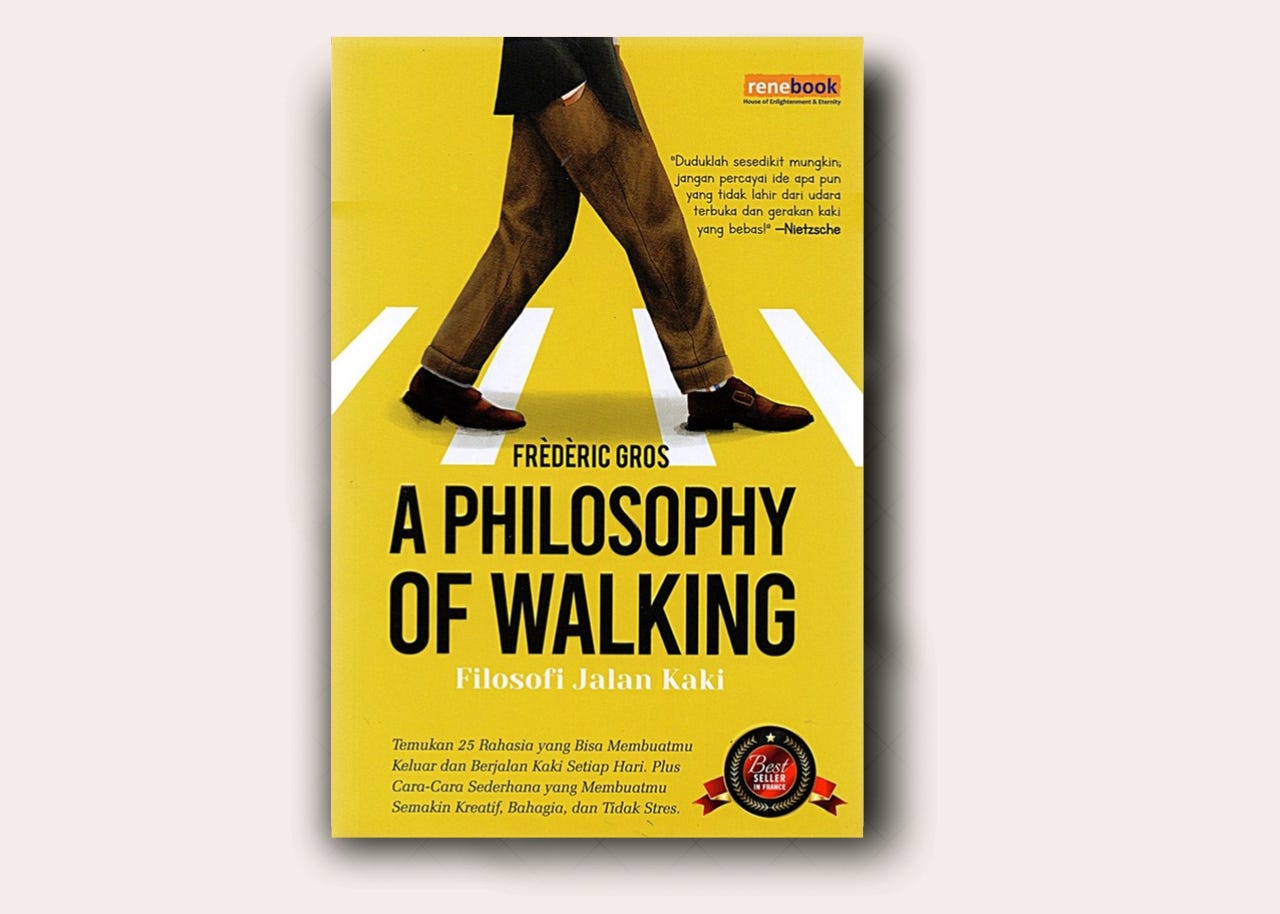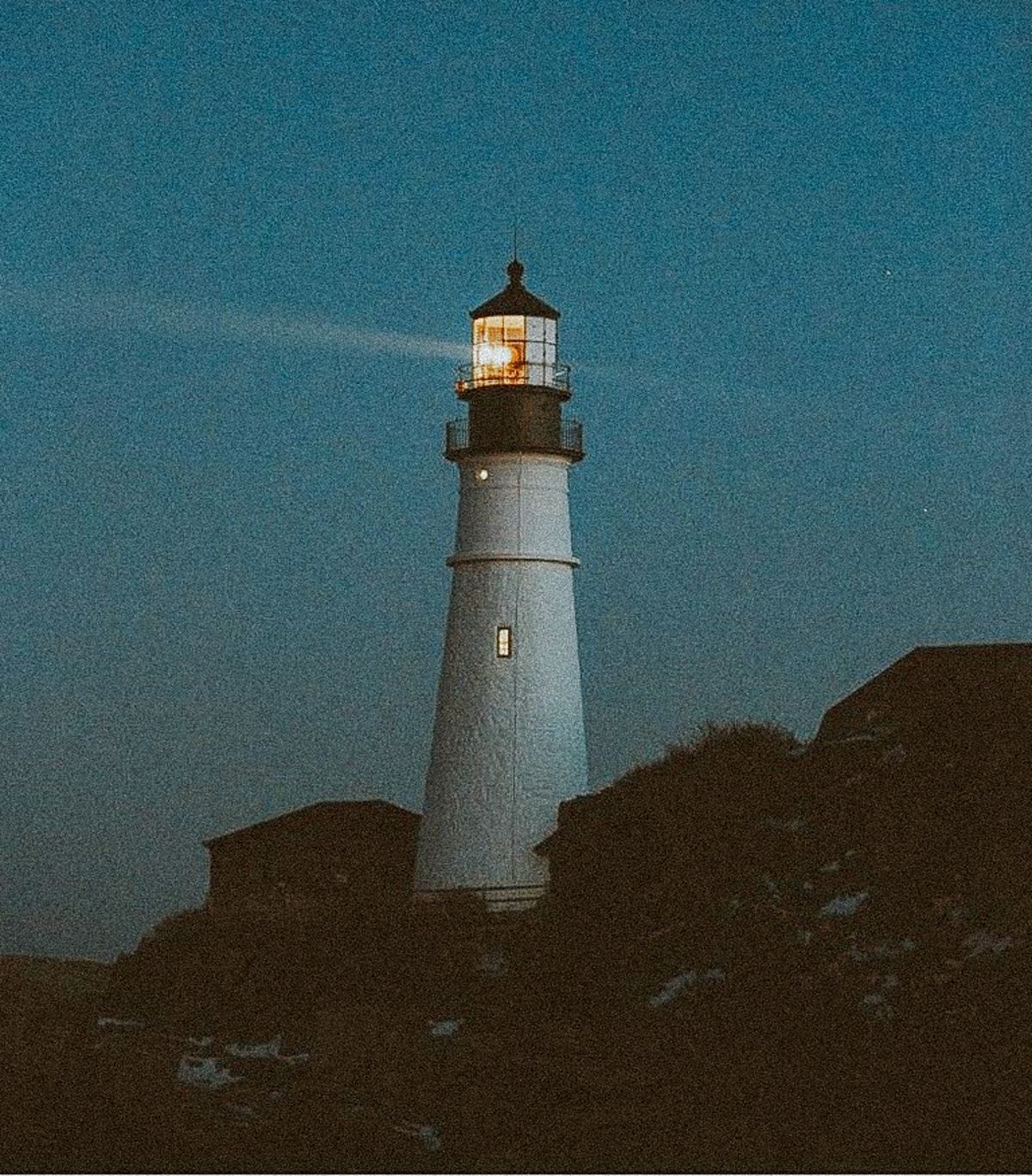Welcome to Mental Garden. The following letter is part of our “Distilling Books” collection, in which we extract the most revealing ideas from literature. For the complete library, click here
🏷️ Categories: Creativity.
Most people think walking is simply that: moving your legs.
Moving your legs, going from point A to point B, burning calories, clearing your head. But what if I told you walking is much more than that? What if I told you that walking slowly, aimlessly, without your phone, can give you back something you lost a long time ago?
This piece is for you if the frantic pace of modern life drains your energy, overwhelms you, and suffocates your creativity. If you feel this hyperactive life isn’t for you.
Let’s talk about the book Walking: A Philosophy by Frédéric Gros.
It’s a book that reconnects walking with introspection, creativity, and slowness as a refuge. And I promise you this: by the end of this, you’ll look at your feet differently. Because in that basic movement, you might find the key to thinking more clearly, creating more freely, and perhaps even living more fully.
Let’s go.
Walking with Low Stimulation
We live in a state of constant overstimulation—walking included.
Most people walk while listening to music or a podcast, or while scrolling through their phone… The ongoing exposure to high-stimulation environments makes it unbearable for many to be alone with their thoughts.
Frédéric spoke to this need to escape what he called “chatter.”
He describes the constant noise we live in, like a radio that’s always on. Notifications, calls, new content every second, checking your phone every 5 minutes… In that nonstop noise, there’s no room for ideas to surface.
Walking with low stimulation turns off the radio and makes space for ideas to arise.
For Frédéric, there is only one measure of success when walking: enjoyment. Enjoying the sky, the air filling your lungs, the scenery slowly shifting with every step. Walk without a stopwatch. Without counting calories or tracking distance. Without stimulation.
Only with this mindset can you unlock walking’s full potential.
But this isn’t new. Nietzsche said it back in 1889…
“All truly great thoughts are conceived while walking.” — Nietzsche
And he didn’t mean it as a metaphor. Nietzsche walked kilometers daily, especially in the mountains. He mistrusted ideas born between four walls. His ideas had to breathe. They had to feel the sun on their skin.
And he was right.
Studies show that walking boosts creativity by up to 81%. The most surprising part? Creativity doesn’t fade once you stop. Even long after walking alone, people remained more creative—as if something inside had been switched on.
Walking without stimulation creates the space for ideas to bloom.
“Sit as little as possible; don’t believe any idea that wasn’t born outdoors and in free movement.” — Nietzsche
The Importance of Slowness
As with many things, the speed at which you do it matters.
When you walk slowly, your pace syncs with your thoughts. When you go for a walk, don’t rush. Any strain or hurried step will crush the development of ideas. You must embrace slowness.
Only then can you enter what’s called diffuse attention mode.
It’s a kind of soft trance—not distracted, but not focused either. You become available for new ideas. That’s what I call “lighthouse mode.” Because your mind is like a lighthouse: alert to everything, but not shining on anything specific.
“Lighthouse mode” is, as Nietzsche might say, where great thoughts occur.
“The illusion of speed is the belief that moving faster saves time. At first glance, it seems simple: finish something in two hours instead of three, and you gain an hour. But that’s an abstract calculation, as if every hour were the same. Speeding up time makes it pass more quickly, and two rushed hours can shorten an entire day.” — Frédéric Gros
The days when you move fastest are often the ones that vanish without notice.
Philosophy and Walking
There’s an old and deep connection between thinking and walking.
Aristotle taught while walking, surrounded by his disciples.
Rousseau got lost on purpose along trails to escape the noise and reflect.
Nietzsche, like Rousseau, walked in nature to think more clearly.
Kant’s case is more peculiar. Kant took a walk every single day at exactly 5 PM. This was the philosopher’s famous walk. His ritual was so punctual that neighbors set their clocks by his departure.
Why did Kant walk every day without fail?
To disconnect. It was his way of escaping the demands of reflection and writing. He walked alone—being with someone meant he’d have to talk and couldn’t relax. Walking was his self-care ritual.
Kant needed that mental escape in the 18th century.
Imagine how much more necessary it is today—to think, to create, to slow down.
What about others?
Henry David Thoreau walked for a completely different reason. He didn’t walk to unwind like Kant or to reflect like the others. He walked to return to the wild. To reconnect with something essential the modern world—even in the 19th century—was already forgetting. While others traveled far to find something extraordinary, he said: “There’s no need to go far.”
Just stop and notice what’s around you. Look, listen, smell.
His walks were acts of faith in the nearby. He knew the value of what we already have within reach. Because you don’t need to take planes or visit distant lands to find yourself, find inspiration, or escape stress.
All it takes is walking.
“A simple short walk is enough to free yourself from the burden of worries, to forget your affairs for a while. With a longer walk, over several days, the process of self-liberation deepens: you escape the bonds of work, shed the yoke of routine.” — Frédéric Gros
✍️ Your turn: When was the last time you walked slowly, without a destination, and without distractions?
💭 Quote of the day: “It is a liberation to be untangled from the net, to no longer be just a knot in the network of information, images, and goods; to see that these things only have the reality and importance you give them.” — Frédéric Gros
See you in the next one—and go out for a walk with this idea in mind! 👋
📚 References
Gros, F. (2021). A Philosophy of Walking
Nietzsche, F. (1889). Twilight of the Idols, or How to Philosophize with a Hammer









lovely. thank you so much, alvaro. i like thoreau's thinking, we don't need to travel far and wide to find some peace.
keep going.
ur fan, j.